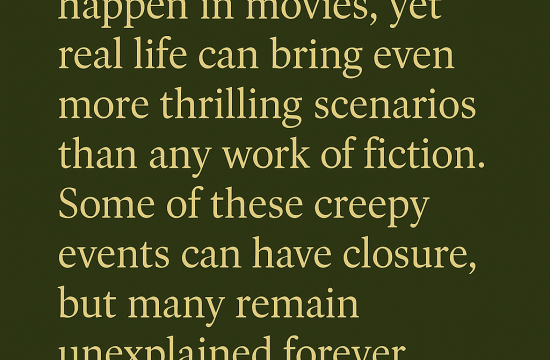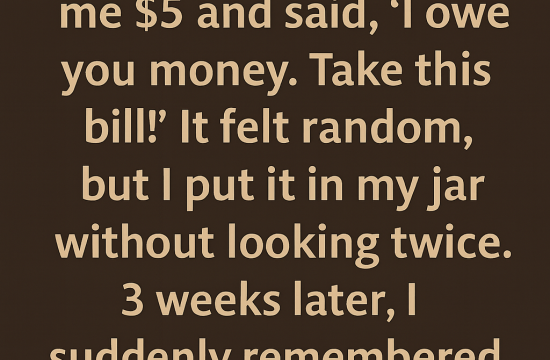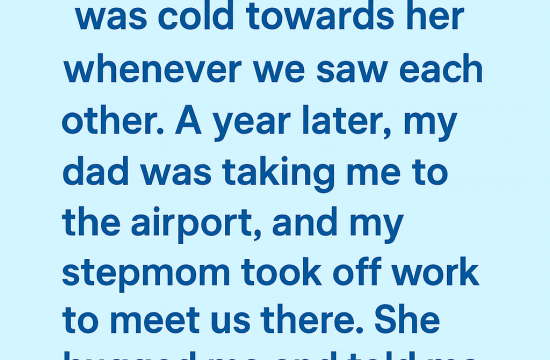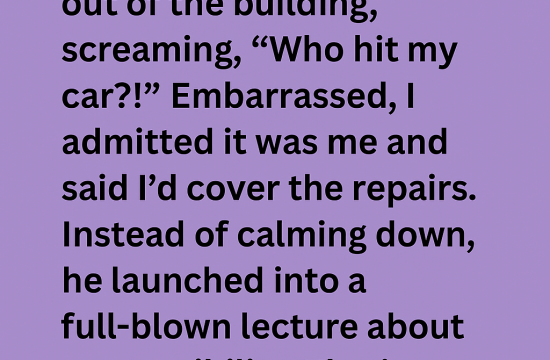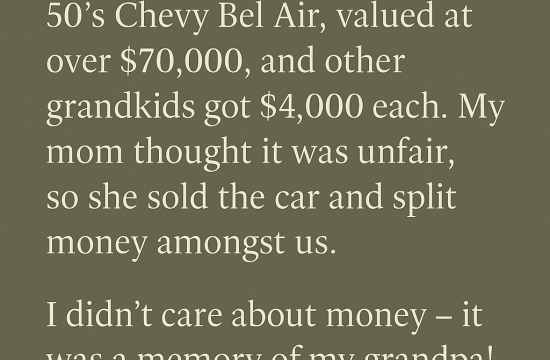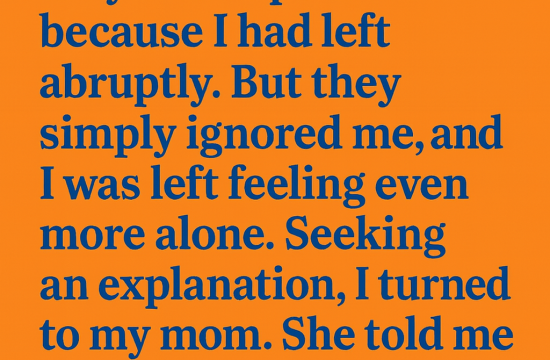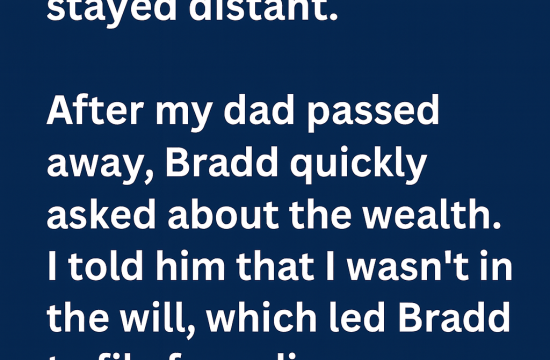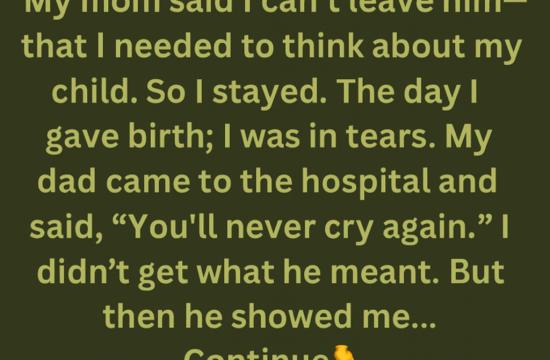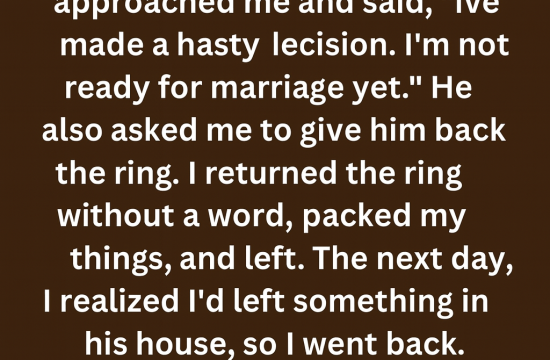I was 16 when my mother, Melanie, died.
She was the kind of woman who saved birthday cards and flattened them into scrapbooks. She made chicken soup from scratch, sang along to whatever was on the radio, and tucked handwritten notes into our lunchboxes well past elementary school.
A part of me thought she was invincible—because of how quietly she bore her pain.
It wasn’t like the dramatic stories you see on medical shows. It was more subtle, sadder… There were early mornings when she moved like her bones were made of glass, or when her hands trembled trying to twist the lid off a bottle of almond milk.
Lupus crept through her like a thief, robbing her joints, her energy, her independence. Some days she glowed like nothing was wrong. Other days, she could barely make it from the couch to the bathroom without pausing to catch her breath.
She didn’t want us to know how bad it really was.
But I noticed. Of course I did.
When I was 14, I found her in the kitchen late at night, crouched next to the fridge, her face tight with pain.
“Mom?” I whispered. “What’s wrong?”
“I just dropped my spoon,” she smiled breathlessly. “Go back to bed, baby.”
The next day, we sat at the kitchen table with her laptop open, searching for anti-inflammatory smoothie recipes.
“Let’s try blueberry and turmeric, Leila,” she said, scribbling ingredients in her loopy cursive. “If I’m going to feel like an old lady, I want to drink something pretty at least.”
That was Mom—gentle, funny, fiercely present. She never let lupus define her, even as it devoured her.
She fought. Even when my dad, Richard, walked out because her illness was “too much.”
I was 12 when I overheard her on the phone with Aunt Theresa.
“I think he cheated because I got sick,” she said, voice hollow. “He didn’t marry a woman. He married a diagnosis. I stopped being desirable the second I couldn’t carry groceries.”
Something in me broke that day. Ethan, my brother, and I were doing homework at the kitchen counter. I looked at him—he had tears in his eyes, but said nothing.
I never forgave our father.
Not for cheating. Not for leaving. And not for moving on while she struggled to open pill bottles without crying.
After the divorce, Ethan and I stayed with Mom. She never asked us to choose sides—but I did. I chose her.
Ethan didn’t. He kept calling Dad every evening. He laughed at his jokes, still spent weekends at his house like nothing had happened.
I couldn’t do that.
I’d seen too much. Heard too much. Held my mother’s hand through too much.
Once, while making us sandwiches after school, I had to ask Ethan.
“How can you still talk to him after everything?”
“He’s still our dad, Leila,” he said with a shrug. “Mom never asked us to hate him.”
“She didn’t have to,” I muttered. “She just survived him.”
When Mom died, it didn’t feel real. It felt like a ceiling caved in and I was standing in the rubble. The house went silent in a way I never expected.
Even Ethan stopped filling it with music.
Her will was meticulous. She’d saved for our college funds since we were babies. But since we were minors, the law made Richard our legal custodian.
I remember staring at the papers.
“Please don’t let him ruin this too,” I whispered.
Soon, I had to move into his house. Ethan was already there, calling it “home.”
His new wife, Marla, was polite in that careful, distant way. The house smelled like lavender cleaner and scorched espresso. Marla offered chamomile tea that first night.
I left it untouched.
I mostly stayed in my room. Then, on a cold Thursday in February, Richard came home early.
I was at the dining table, papers spread out, a highlighter cap between my teeth. A college acceptance letter was tucked in my hoodie pocket.
He walked in without greeting me.
“Stop applying to colleges,” he said flatly.
“What? What do you mean?”
“There’s no point,” he replied, tossing his coat onto a chair. “I already gave your college fund to your brother.”
I froze.
“You couldn’t,” I whispered. “That was Mom’s money. For me.”
“I could,” he snapped. “And I did.”
“Why would you do this?”
“Ethan deserves it,” he said coldly. “You hated me the second your mother got sick. So why should I pay for your future?”
Ethan’s door creaked open upstairs.
I didn’t answer. I couldn’t.
I went to my room and packed one suitcase.
That night, I left.
Grandma Elaine opened her door in slippers and hugged me so tight I nearly collapsed. She didn’t ask questions.
“Come on, my baby,” she said. “I’ll set you up in the guest room.”
The next morning, she made tea and called a legal aid attorney.
Turns out, you can’t give away a minor’s inheritance just because you’re mad.
“That man doesn’t know what’s coming,” Grandma said. “We’ll make soup. Ms. Delgado will handle the rest.”
Ms. Delgado filed a petition. The court subpoenaed his banking records.
What they found was worse than we imagined.
He hadn’t just emptied my fund—he’d drained the joint account Mom left, spending thousands on luxury items, vacations, and espresso machines.
The court ruled three weeks before my 18th birthday. Richard was ordered to repay every cent, plus interest. Aunt Theresa took over as guardian of both funds.
I wore Mom’s silver earrings to the hearing. I didn’t cry. I let the truth speak for itself.
I enrolled at my dream college.
The acceptance letter sits framed on my desk, next to a photo of Mom in the sun, smoothie in hand. I laminated our recipe list. I still make the blueberry one when I miss her most.
Two nights before college, Aunt Theresa made spaghetti and lit candles.
“I should’ve fought harder,” she said. “But I’m here now. You’ll always have a room in this house.”
She said she’s thinking of asking Grandma to move in.
“She’d like that,” I smiled. “I think Mom would keep you both closer now.”
“And you, during semester breaks. Ethan too, if he ever wants to come… home.”
Ethan called after the judgment.
“I didn’t know,” he said. “Karate’s canceled. Dad’s broke. Marla’s fed up.”
“I’m sorry, E,” I said.
“Do you hate me?”
“No. But I can’t come back.”
“I get it,” he said.
I wanted to say I loved him. That I missed him.
But some truths are too fragile for phones.
My father called too. I never answered. His last voicemail came a week before college:
“You think this is justice? You’re just like Melanie. Always the victim. Apples and trees, huh? Go live your life.”
I deleted it.
He never got it. It was never revenge.
It was for my mother—who researched scholarships at 2 a.m. with aching fingers, who whispered promises into my hair while fighting for breath.
“You will go further than I ever could, my Leila-girl. I promise.”
She didn’t raise me to scream. She raised me to stand.
And sometimes, late at night, I remember her cold hands on my face and her warm voice saying:
“You are allowed to take up space. Even when people make you feel small.”
Now I understand.
And I took up space—in court, in college, and in the life she left me.
When Richard’s name lights up on my phone now?
I let it ring. Then I let it go.
Ayera Bint‑e has quickly established herself as one of the most compelling voices at USA Popular News. Known for her vivid storytelling and deep insight into human emotions, she crafts narratives that resonate far beyond the page.



